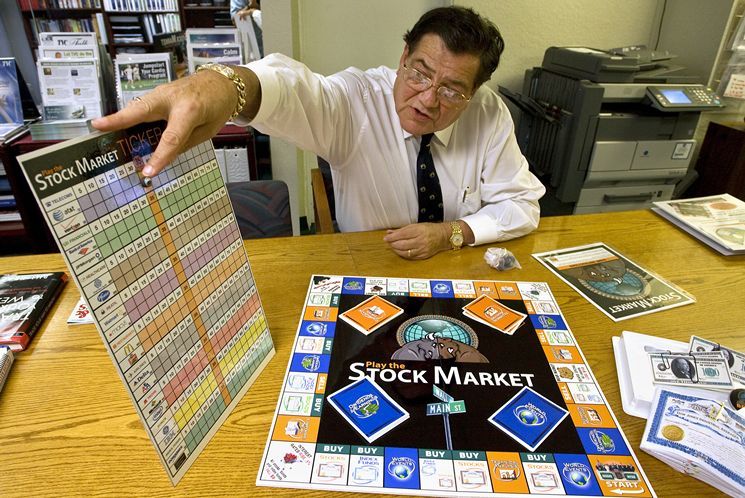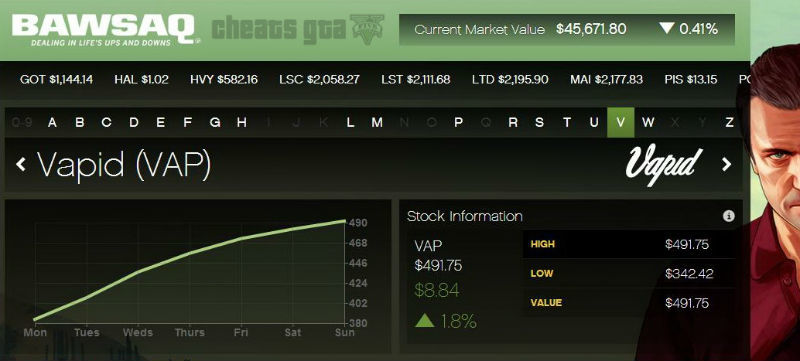How-to: Gamification and stock trading

In the past few years, no one has been surprised by the game mechanics who use, including financial organizations. Some banks are actively involved in introducing gamification - they create games that can encourage users to make purchases, order new banking services, provide recommendations to friends, or simply increase financial literacy.
Organizations related to trading on the exchange are following this path - game mechanics are implemented by the exchanges themselves, brokers and even third-party application developers. This allows some companies to increase the activity of traders, increase trading volume and profit from commissions, while others make money on training. Moreover, sometimes game developers and even conference organizers are involved in introducing elements of stock trading to increase the involvement of players and visitors to the event.
')
In our today's material - several such game examples from foreign and domestic practice.
Financial Literacy Applications
One of the most famous examples of the combination of gamification and exchange technologies is the TradeHero application. Created by Singaporean developers from MyHero, the application allows users to train to work on the stock exchange without the risk of losing real money.

A user who has downloaded the application receives $ 100 thousand in a virtual account and can buy shares, the price of which repeats real market fluctuations. The creators of the application call it "a tool to improve financial literacy." The application includes a tournament table, which displays the results of traders - to get around others and earn better, this is an excellent incentive to better understand the issues of trading on the stock exchange.
Another similar application is BUX . Its creators declare that they want to bring “more fun” into the process of learning to work on the stock exchange. Users of the application receive step-by-step instructions on how to search for stocks for investment, how to buy and sell them, competing with other users, and also train traders in their professional jargon.
Unlike TradeHero, BUX has the ability to make real money transactions; users can switch to real trading when they feel confident in their actions.
Broker virtual gamification
Many brokerage companies offer their clients the opportunity to test access to the exchange. The goal here is the same as in the case of specialized mobile applications - it is beneficial for a broker that his clients enter the real market more prepared and, as a result, save their money longer by performing operations and deducting the commission to the broker, rather than “depositing” the deposit at first time.
Stimulate the desire to learn about the financial market can be more with the help of game mechanics - all as in applications. We at ITinvest have created a special competition called “League of Traders”. There is both a “ combat ” version of it, where users disclose trading results for selected accounts, and a test version, where users of a test trading circuit compete with each other.

Competitions on the real exchange
In addition to learning applications, there are cases of game mechanics introducing into the actual exchange trading process itself. For example, in Russia, the Moscow Exchange has been holding the Best Private Investor Competition for many years, during which traders compete with each other in various categories when trading on the stock, derivatives and foreign exchange markets.
As a rule, the competition is held according to the following scheme - the participants agree to open the result of their financial operations on a special account registered for the competition. The winner is the one who, in the allotted time, increased his capital in the most large-scale way. The winners receive prizes from the Exchange, as well as from brokers through which they work in the market.
The purpose of the Exchange in conducting such a competition is to increase the activity and volume of trading, and hence earnings on commissions. As for brokers, they can also count on additional income, besides the presence of winning clients is a plus in terms of marketing and attracting new users. For example, ITinvest offers cash awards or six-month free stand-up space in the Moscow Exchange's collocation zone for its client winners of this year’s competition - this is useful for those who want to place a trading robot closer to the core of the exchange trading system.
Finance in games - the experience of GTA V
Hijacking car shooting is far from the only challenges a player faces in GTA V. The developers have implemented the possibility of financial fraud on virtual exchanges.
There are two exchanges available in the game - Liberty City National (LCN) and BAWSAQ, each with its own list of available stocks, tickers and indicators. You can trade on these sites using a browser on your smartphone. The situation on the exchanges intersects with the gaming story - the names of many companies trading on LCN and BAWSAQ are often heard on the radio in stolen cars, or their advertising could be found moving around the city. And what is even more interesting, the player can influence the stock value by his actions “in real life”. For example, if you crush the store of a company that is traded on gaming exchanges, the price of its shares will fall.

The topic of trading on such virtual platforms interested even journalists of specialized publications - for example, the editor of The Wall Street Journal wrote a detailed article listing tried and tested ways of making money on gaming exchanges.
Increasing the involvement of participants in hacker competitions
At one of the international hacker events that took place not so long ago in Moscow, the organizers also introduced elements of trading on the stock exchange in one of the hacker contests. CTF competitions involve the struggle of different teams of hackers - they must attack opponents and defend their infrastructure.
A common element that combined all the contests within the CTF, was a special exchange. It traded shares of various companies - mobile operator, bank, and so on. Each company had its own competition - hacking an ATM or a cellular network. Hackers could attack these companies, after which the shares fell in price, which opened up opportunities for speculation - the money earned was points, which were added to the team's box, bringing it closer to victory.
Source: https://habr.com/ru/post/268431/
All Articles